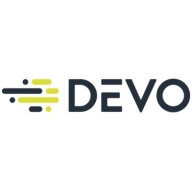

Find out in this report how the two Security Information and Event Management (SIEM) solutions compare in terms of features, pricing, service and support, easy of deployment, and ROI.


Devo is the only cloud-native logging and security analytics platform that releases the full potential of all your data to empower bold, confident action when it matters most. Only the Devo platform delivers the powerful combination of real-time visibility, high-performance analytics, scalability, multitenancy, and low TCO crucial for monitoring and securing business operations as enterprises accelerate their shift to the cloud.
Stellar Cyber’s AI-driven Security Operations Platform powered by Open XDR delivers comprehensive, unified security without complexity, empowering lean security teams of any skill to secure their environments successfully. With Stellar Cyber, Enterprises, MSSPs and MSPs reduce risk with early and precise identification and remediation of threats while slashing costs, retaining investments in existing tools, and improving analyst productivity, delivering a 20X improvement in MTTD and an 8X improvement in MTTR.
What are the standout features?
What benefits should users look for?
Stellar Cyber Open XDR is especially beneficial in industries that demand state-of-the-art cybersecurity measures, such as finance, healthcare, and retail. Users in these sectors rely on it for its comprehensive data integration, real-time threat detection, and seamless tool compatibility, enabling them to maintain high-security standards while dealing with sensitive information.
We monitor all Security Information and Event Management (SIEM) reviews to prevent fraudulent reviews and keep review quality high. We do not post reviews by company employees or direct competitors. We validate each review for authenticity via cross-reference with LinkedIn, and personal follow-up with the reviewer when necessary.